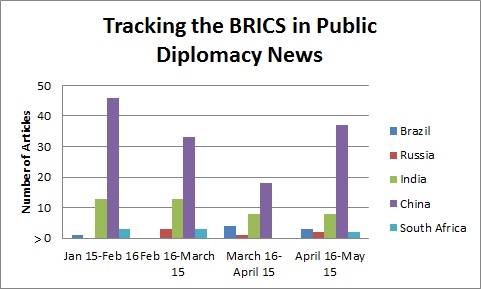The View from CPD
When dealing with unfriendly states, public diplomats are likely to find that access to the publics they want to reach is frustratingly difficult. Although various layers of governmental hostility need to be pierced, the audience beyond political barriers may prove particularly receptive to outreach from a distance. A government that seeks to darken its nation’s window to the greater world often stimulates, even if inadvertently, public curiosity about what is happening elsewhere.
Digital Diasporas: An Opportunity for Public Diplomacy
If public diplomats want to reach the population of a particular country, they can design their efforts to connect with those people within the traditional geographic confines of that nation, or they can expand their targeted audience to include those who are citizens of the “virtual state” – the diaspora living across the globe.
Public diplomacy has increasingly addressed issues of particular interest to women, ranging from personal safety to economic empowerment. Throughout much of the world, harsh gender-based disparities damage the lives of individuals and nations, underscoring the importance of public diplomacy programs that respond to women’s needs. In this issue of PDiN Monitor, we have asked two of the world’s top diplomats, Michelle Bachelet, former president of Chile and current director of UN Women, and Melanne Verveer, U.S.
Not only the United Kingdom, but also every other participant country, had ample opportunity to use the 2012 London Olympics as a venue for public diplomacy. When the world is watching, public diplomacy flourishes.
Digital media constitute some of the most important tools of modern diplomacy and also have themselves become, collectively, a diplomatic issue. If the world‘s democracies are serious about enhancing freedom around the globe, they must champion the right to communicate as fully as technology allows. If, on the other hand, authoritarian states wish to continue to smother freedom, they need to restrict the ability to communicate.
China’s status as the soft-power superpower is underscored by the data illustrated here. With its huge financial and policy-oriented commitment to public diplomacy, China receives a major share of PD-related news coverage of BRICS.
Entertainment, broadly defined, deserves to be recognized as an important component of any nation’s public diplomacy. In terms of delivering a message that is a manifestation of a nation’s culture, a visiting dance troupe, rock band, or sports team is likely to connect with many more people than would a diplomat’s pronouncements.
This issue of PDiN monitor focuses on WikiLeaks, a topic that has preoccupied many in the diplomatic community and the news business. I am among those – apparently a minority – who think the controversy about the specific content of the leaked documents has been overblown. The material is sometimes embarrassing, but rarely surprising, and there is no evidence the document dump has significantly disrupted the conduct of diplomacy. States need to deal with one another, and they will continue to do so even if accustomed secrecy is breached.








